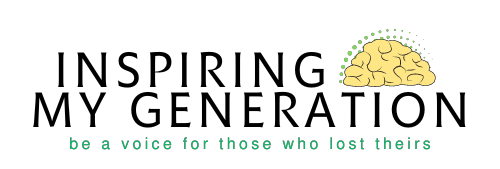I Create the Mental Health Tools I Wish I Had When I Was Struggling
In 2019, I almost lost my life for the third time. Growing up with depression, severe ideation, and self-harm, I did not have the resources or conversations that could have taught me about my own mental health, warning signs, or treatment options. I believed the voices that told me I did not belong, that the world would be better off without me. Eventually, it all became too much.
I have been in therapy where it felt like the person across from me had no idea what it meant to survive the kind of pain I was living through. I wish I had someone who understood what I was going through. I wish my therapist had looked at me with compassion and shown up as a human, not a blank slate. Sitting in that room, pouring out the hardest parts of my life while the other person scribbled notes without a reaction, only made me feel more invisible.
Now, during my trainee hours and as a volunteer in various facilities, I have sat with individuals struggling as someone who knows what it means to break, to fall apart, and to rise again. That difference changes everything.
When I sat down with Victoria Roman on Normalize The Conversation, something she said struck me deeply: she only shares tools and resources she has personally used. In that moment, I understood why I do what I do.
When I was discharged from the psychiatric unit in 2019, I was given zero tools to survive on the outside. For me, time had stopped, but for the rest of the world, the carousel kept turning. Inside, I had been “kept safe.” Outside, I was thrown back into reality unequipped, and I felt worse leaving than I did going in. That walk out the unit doors shaped everything I do today.
My first workbook, You Are Not Alone: The Workbook, was the survival guide I created for myself. It held the worksheets I used, the conversations I mapped out for my parents, and the questions I used with friends. Over time, I realized how many others could benefit from those exact tools. Now, each year I release another workbook filled with strategies I actively practice in my own life. Like Victoria, I believe you can only share what you know works.
I know what it feels like to sit in a hospital bed searching for hope, wondering if life will ever feel less suffocating. That is why I send encouragement cards to psychiatric units, because someone still caring can make all the difference. I know the value of processing emotions in new ways, which is why I bring my art therapy board game to Didi Hirsch every Monday. I know how overwhelming recovery can feel without a roadmap, which is why I continue to create tools filled with reflections and exercises that meet people where they are.
These resources are not abstract theories. They are lived. They are practiced. They are pieces of my own healing extended to you.
The conversation with Victoria reminded me that relatability matters. People do not always connect with clinical language. They connect with honesty. They connect with knowing the person across from them has felt the weight of hopelessness and still found a way through.
At Didi Hirsch, I talk openly about my psychiatric unit stay and my ongoing struggles with depressive episodes. I do not hide them. Vulnerability is how I connect. I want the people in front of me to feel seen, to know I understand their pain, and to trust that I will walk with them through it. When you know someone else has walked the road you’re on, you start to believe you can keep walking too.
If there is one thing I have learned, it is this: trust is built when we show up as humans first. Our scars do not make us weak; they make us real. Healing does not come from perfection. Healing comes from connection. And, it is about meeting each other in our vulnerability, existing in the truth that none of us are in this jouney alone.
And that will always be the heart of my work: to turn pain into purpose, to humanize the darkest spaces, and to remind you that even in your hardest moment, you are never alone.
The Power of Relatability in Therapy: Breaking Stigma & Strengthening Trust w Victoria Roman, LCSW is available now on Spotify, Apple Podcasts, and wherever you listen.
